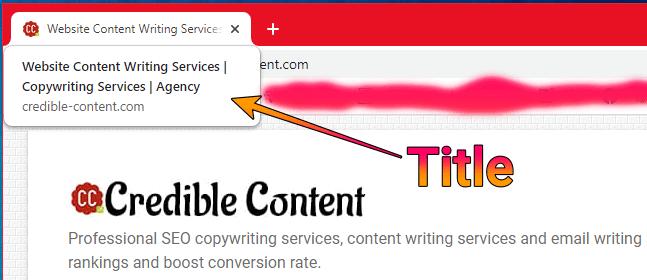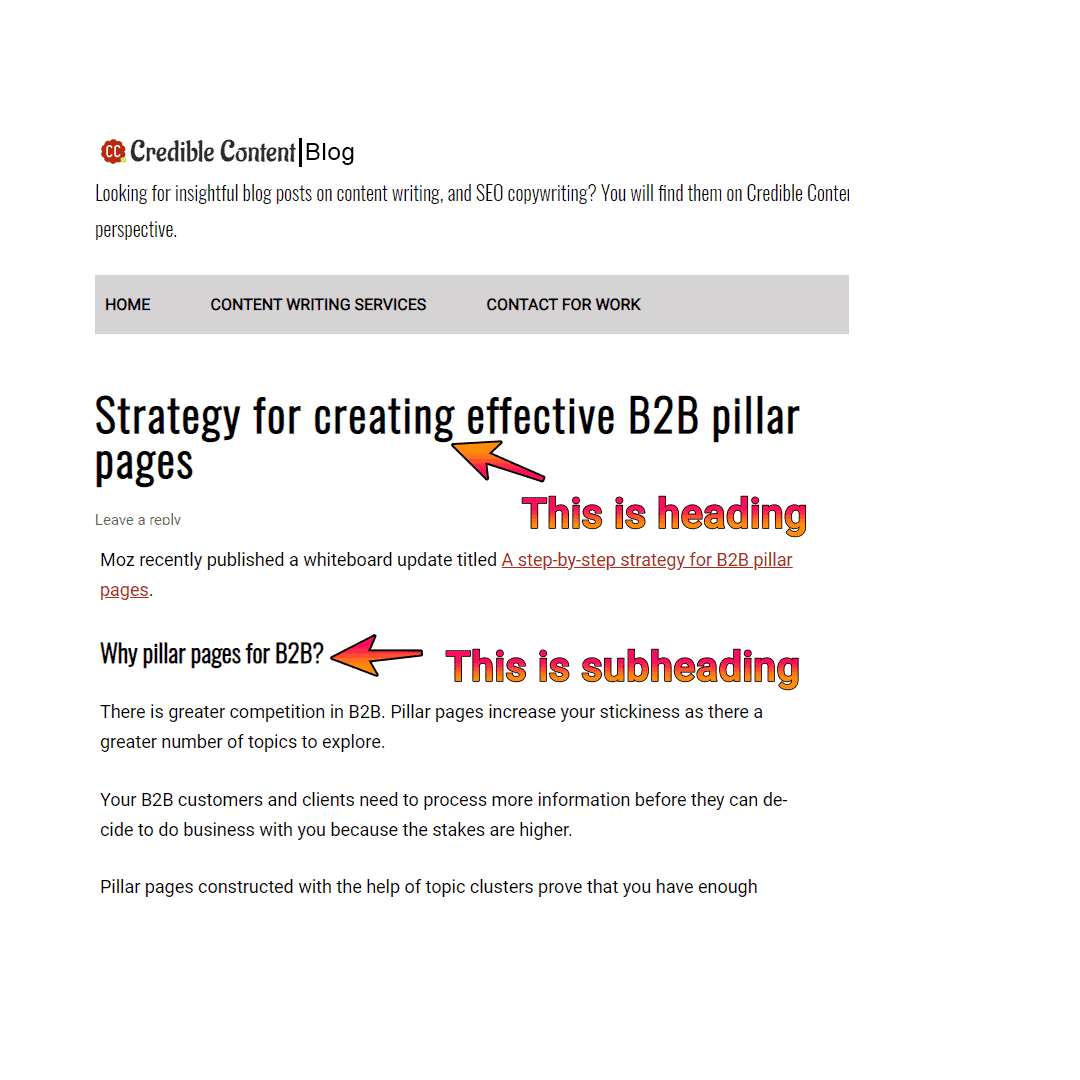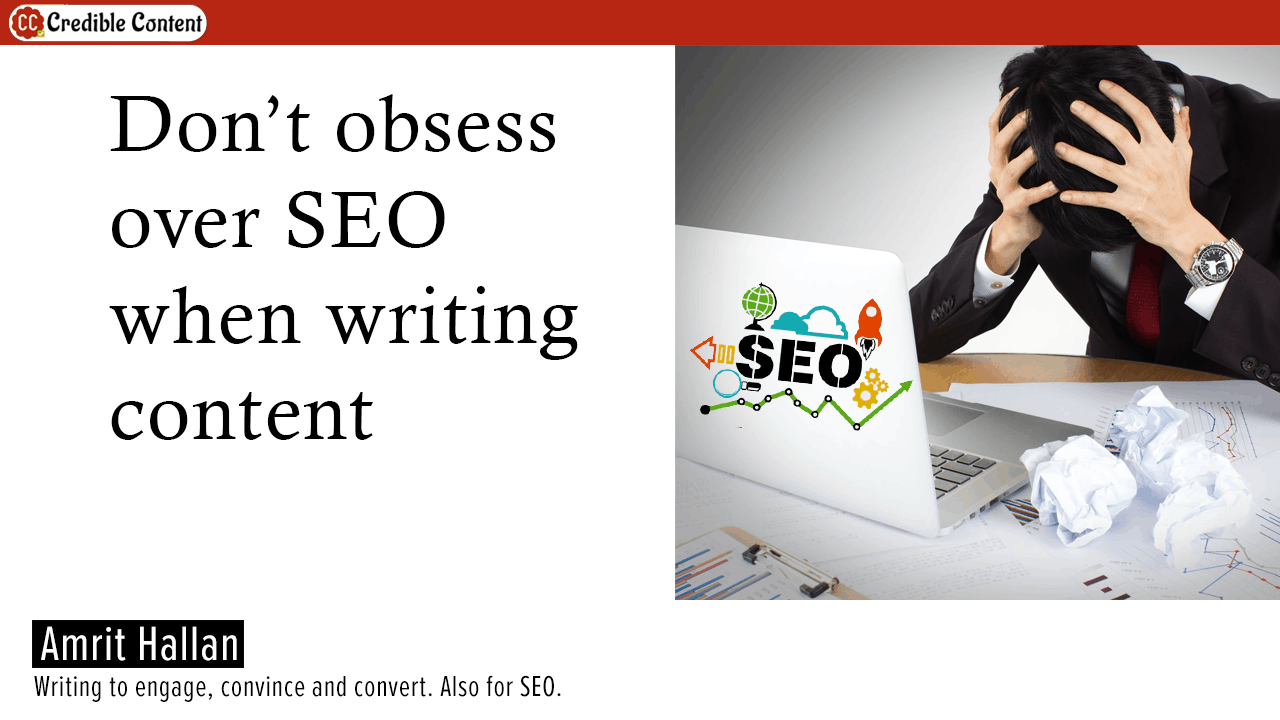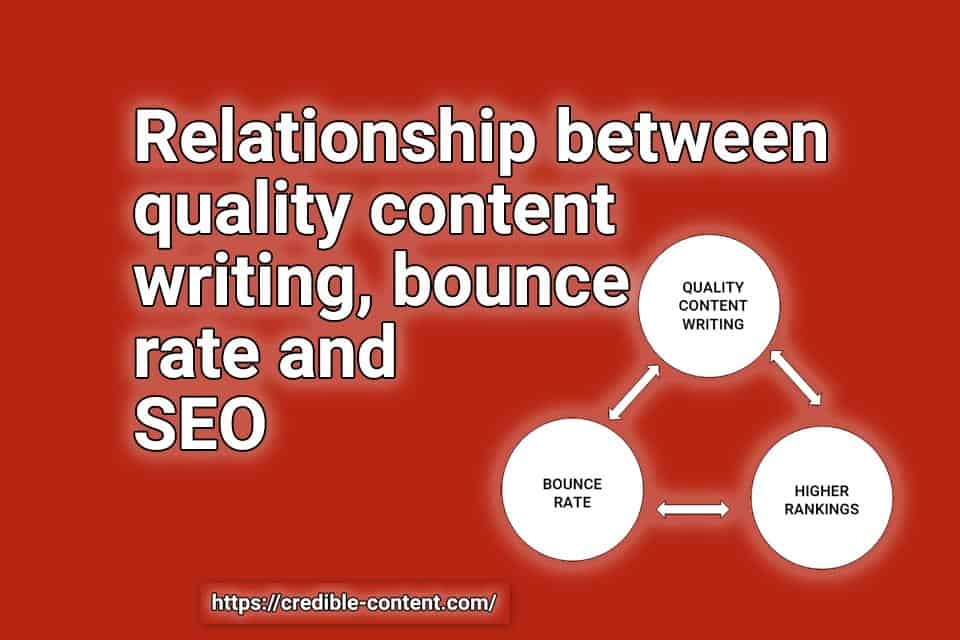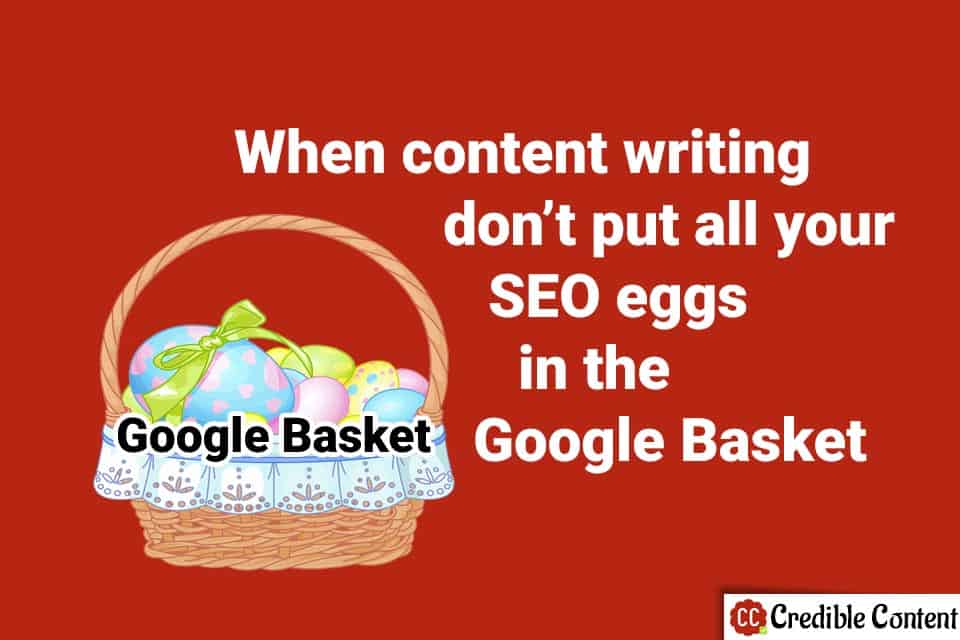Sometimes it becomes difficult to come up with interesting content to write about on a regular basis on my blog. I was answering to a Quora question and I thought, answers to some of my Quora questions can also be used to write blog posts.
I was providing an answer the following question: How do I write content that is SEO friendly?
Steps to writing SEO-friendly content:
- Include the main keywords in the title.
- Include the keywords in the meta description.
- Mention the keywords within the first 100 words of your write up.
- Focus on writing answers to specific queries.
- Write for search intent.
- Write shorter sentences.
- Use headings and subheadings.
- Focus on longtail keywords.
- Link to other blog posts and web pages from your current blog post or web page.
- Write short paragraphs.
- Summarize using bulleted points.
To be frank, I have written on the topic multiple times on my blog, but I can always add new things. I’m constantly learning new ways to write search engine friendly content. In this post I’m going to expand what I wrote on Quora.
Should you go overboard with writing SEO-friendly content?
The problem with writing SEO-friendly content is that sometimes people go overboard and ignore the bigger picture. Your content succeeds not because it gets you higher search engine rankings, it succeeds because it provides relevant information that can be quickly understood.
For many website owners and bloggers it’s SEO that’s most important. This does you more harm than good.
Even if right now you have better search engine rankings because you think you have cracked the search engine algorithm, if you’re not satisfying your visitors, the rankings go down.
This is because your rankings depend a lot on your bounce rate. If people find your link, come to your website, and then leave immediately because they don’t find the information they are looking for, Google and other search engines know that.
So, even in the beginning if you can improve your rankings because of “strategically” using your keywords, ultimately, it all boils down to how people interact with your content.
What exactly is SEO-friendly content writing?
I don’t believe that SEO-friendly content writing means content writing that improves your search engine rankings. Your search engine rankings depend on 200+ factors.
So, solely focusing on writing SEO-friendly content doesn’t help you much.
What is SEO-friendly content writing?
It is writing in a manner that it makes it easier for search engine crawlers to crawl your main content. Once the main content is crawled, the search engine algorithms should be able to make sense of your content. They should be able to make out what you are communicating. This, is SEO-friendly content writing.
Do I keep SEO in mind when writing content for my clients?
I definitely do.
Valuable content is necessary, but how I present that valuable content can have an impact on search engine rankings. Here are a few things I do when writing SEO content for my clients:
Include the main keyword in the title
There is a difference between the title and the headline. The title here means the string of text that appears in in the title bar of your browser window when you visit a website. This is the title:
By main keyword I don’t mean a single word. Target for a phrase of around 3-4 words. Nobody searches for a single word. People either ask a question or search for a phrase that contains a few words.
Many content marketing experts may tell you that it doesn’t really matter if you use your main keyword in your title, but it does. Whether the Google algorithm takes the keyword in the title into consideration are not, is another matter.
There is a logical reason why you must have your main keyword in your title.
Research has revealed that when a part of the search query that a user has just used appears as a hyperlink in the search results, the user is more likely to click the link.
This sends more people to your website or that particular link.
And if your link is relevant, this signals to Google that the rankings of this particular link should be raised.
Include the keywords in the meta description
I know, sometimes meta description text may not be a part of content writing, but many times my clients ask me to write the meta description too.
When you include your primary and secondary keywords in the meta description, Google highlights them.
Again, this prompts more people to click your link and this in turn improves your bounce rate, which in turn, improves your SEO.
Mention the keywords within the first 100 words
I have arrived at this logic by trial and error.
When the search engine crawler comes to your website it may not get a chance to crawl your entire piece of content. Hence, if it does not encounter your main keywords, it may not associate the keywords with the body text.
Therefore, it is important that you mention your primary and secondary keywords within the first 100 words of your web page or blog post text.
Create a context though. Don’t just randomly use the words
Focus on writing answers to specific queries
Google loves the question-answer format. People ask questions and Google find the answers.
For example, you may have come to this post if you searched for “How do I write search engine friendly content?”
I’m not saying that you should always write in the format of question-answer, but this sort of content fares better than the usual content.
Write for search intent
If you want to know what is search intent, you may like to read my blog post on the same topic: Why search intent is most important when writing content for your website.
Search intent is a very big factor when Google is evaluating your content. It is the intention with which a search engine user uses a query when searching for something.
You can easily write content targeting specific search intents described in the above link. The more you write content targeting specific search intents, the more SEO-friendly your content is.
Write shorter sentences
Shorter sentences are easier to read. They are also easier for search engine algorithms to process, analyze and evaluate.
Using shorter sentences does not mean that you are a novice writer. In fact, it shows that you are a confident writer. You have got nothing to prove to anyone.
Well, that’s a different issue, but one of the biggest benefits of writing shorter sentences is that you express a single thought in a single sentence, which makes it easier even for your readers to read. It doesn’t tax the brain.
Use headings and subheadings
Headings and subheadings amplify your primary and secondary keywords. They also make it easier to organize your content under various sections. Headings and subheadings also make your writing scannable.
Since you use your primary and secondary keywords in your headings and subheadings, the Google algorithm thinks that they must be important to your message.
Focus on longtail keywords
Shorter keywords are quite competitive. For example, if I try to optimize my writing for “content writer” or “content marketing services” it may be difficult for me to rank for these keywords because they are highly competitive, and many bigger companies are already ranking quite high for them.
So, what do I do?
I aim for something like “indisputable benefits of content marketing”. This makes it easier to rank my content.
You will be surprised to know that most of your traffic comes from longtail keywords.
Longtail keywords exist in the form of longer such queries. They are phrases that contain 3-4 words.
Link to other blog posts and web pages from your current blog post or web page
Contextually, though.
Suppose, I want to elaborate on the indisputable benefits of content marketing. If I have already published a blog post on it, I will be creating duplicate content needlessly if I explain the same thing again. Hence, I just say, in case you want to read about the indisputable benefits of content marketing.
This does not just make it easier to refer to your existing content, it also allows the search engine crawlers to come across your old links in case they haven’t yet been crawled.
Write short paragraphs
The logic is the same as writing short sentences. It is easier to read shorter paragraphs. Both for humans and the search engine algorithms.
In fact, there are many renowned content publishers who use just a single sentence in a paragraph, but you can easily use a couple of sentences.
Another benefit of writing shorter paragraphs is that they are easier to read on mobile phones.
Summarize using bulleted lists
Just as headings and subheadings make your content scannable, so do the bulleted lists. People tend to read the bulleted lists more than plain sentences and paragraphs.
In bulleted lists, you don’t even need to write complete sentences. You can sum up your points in monosyllables. In bulleted lists, the information is more important than how you write it.
These are the main points that I wanted to cover. If you take care of them, it can make it easier for you to write SEO-friendly content.


